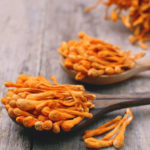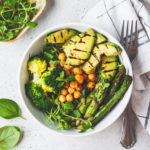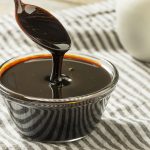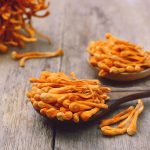Can Cordyceps Strengthen Your Immune System?
What mushrooms are best as immune boosters?
Andrew Weil, M.D. | October 15, 2021
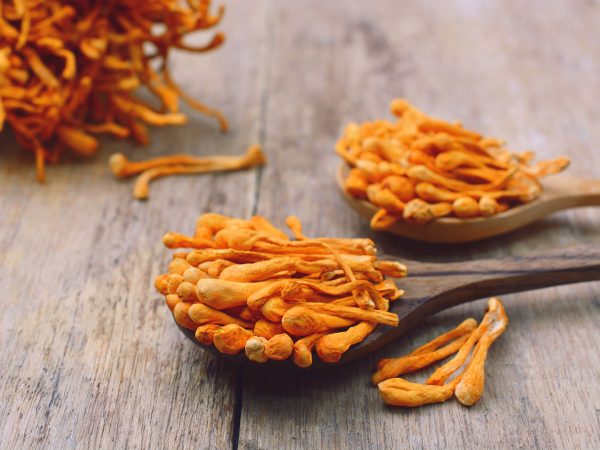
Cordyceps is a fungus originally found high in the Himalayas and available more recently as a tincture, liquid extract, capsule, or powder. It has long been used in Tibetan and traditional Chinese medicine for a variety of ailments, and I recommend it to boost energy and increase aerobic capacity. It’s one of my favorite medicinal mushrooms, but I don’t believe it’s the best choice if the goal is strengthening the immune system.
Western medicine has been slow to investigate natural products that Eastern practitioners have used for centuries, but there have been several scientific papers published supporting the medicinal properties of certain mushrooms. Several of them have been studied for their effect on the immune system and some even show promise as adjunctive treatments for certain forms of cancer:
- Maitake (Grifola frondosa) is sometimes called “hen of the woods” due to its fluffy appearance. Studies have suggested it has anti-cancer properties, including one clinical trial that showed promise against triple-negative breast cancer. Maitake can be used in cooking or taken as a supplement.
- Turkey tail (Trametes versicolor), a mushroom named for its unique shape and colors, has also been shown to boost immunity in women who had been treated for breast cancer. Turkey tail is strictly medicinal, being too tough and woody to be a culinary ingredient.
- Reishi (Ganoderma lucidum), which is called Lingzhi in China, is known for its antioxidant and immune-boosting properties. Reishi can be found as tea, in capsules, and as liquid extracts.
- Shiitake (Lentinus edodes) mushrooms are rich in antioxidants and vitamins. They are delicious and nutritious additions to your diet and have been shown to help lower cholesterol in the blood and reduce risk of cancer. A recent paper in the journal Nutrients reports on a novel effort to grow them over beds of the herb Astragalusto merge the anti-cancer and immune-boosting properties of these two mainstays of Eastern medicine.
- Enoki mushrooms (Flammulina velutipes), also known as golden needle mushrooms, are mild in taste and have been shown to lower blood sugar, cholesterol levels, and blood pressure. They are also rich in antioxidants. They appear to offer protection against cancer.
What these mushrooms have in common is that they all contain polysaccharides, which are known for their role in boosting immunity, reducing inflammation, and even supporting natural resistance to viral infections.
A recent review published in the journal Frontiers in Pharmacology found promise in cordyceps for a variety of uses, based largely on laboratory studies of compounds found within it. The review concludes that more study is needed to substantiate claims of its role in immunity and to better understand its safety. While those investigations are underway, I recommend the other mushrooms listed above that have been shown to boost immunity. For more, see my guide to my favorite mushrooms here.
Andrew Weil, M.D.
Sources:
Das, Gitishree et al. “Cordyceps spp.: A Review on Its Immune-Stimulatory and Other Biological Potentials.” Frontiers in pharmacology vol. 11 602364. 8 Feb. 2021, doi:10.3389/fphar.2020.602364 https://www.ncbi.nlm.nih.gov/pmc/articles/PMC7898063/
Panda, Ashok Kumar, and Kailash Chandra Swain. “Traditional uses and medicinal potential of Cordyceps sinensis of Sikkim.” Journal of Ayurveda and integrative medicine vol. 2,1 (2011): 9-13. doi:10.4103/0975-9476.78183 https://www.ncbi.nlm.nih.gov/pmc/articles/PMC3121254/
Alonso, Eliana Noelia et al. “Antitumoral and antimetastatic activity of Maitake D-Fraction in triple-negative breast cancer cells.” Oncotarget vol. 9,34 23396-23412. 4 May. 2018, doi:10.18632/oncotarget.25174 https://www.ncbi.nlm.nih.gov/pmc/articles/PMC5955106/
Deng, Gary et al. “A phase I/II trial of a polysaccharide extract from Grifola frondosa (Maitake mushroom) in breast cancer patients: immunological effects.” Journal of cancer research and clinical oncology vol. 135,9 (2009): 1215-21. doi:10.1007/s00432-009-0562-z https://www.ncbi.nlm.nih.gov/pmc/articles/PMC3751581/
Zeng, Pengjiao et al. “Chemical, biochemical, preclinical and clinical studies of Ganoderma lucidum polysaccharide as an approved drug for treating myopathy and other diseases in China.” Journal of cellular and molecular medicine vol. 22,7 (2018): 3278-3297. doi:10.1111/jcmm.13613 https://www.ncbi.nlm.nih.gov/pmc/articles/PMC6010762/
Balakrishnan, Biju et al. “Combining the Anticancer and Immunomodulatory Effects of Astragalus and Shiitake as an Integrated Therapeutic Approach.” Nutrients vol. 13,8 2564. 27 Jul. 2021, doi:10.3390/nu13082564 https://www.ncbi.nlm.nih.gov/pmc/articles/PMC8401741/
Li, Ye et al. “Natural Polysaccharides and Their Derivates: A Promising Natural Adjuvant for Tumor Immunotherapy.” Frontiers in pharmacology vol. 12 621813. 14 Apr. 2021, doi:10.3389/fphar.2021.621813 https://www.ncbi.nlm.nih.gov/pmc/articles/PMC8080043/
Chen, Yun et al. “Polysaccharides from Traditional Chinese Medicines: Extraction, Purification, Modification, and Biological Activity.” Molecules (Basel, Switzerland) vol. 21,12 1705. 13 Dec. 2016, doi:10.3390/molecules21121705 https://www.ncbi.nlm.nih.gov/pmc/articles/PMC6273901/


